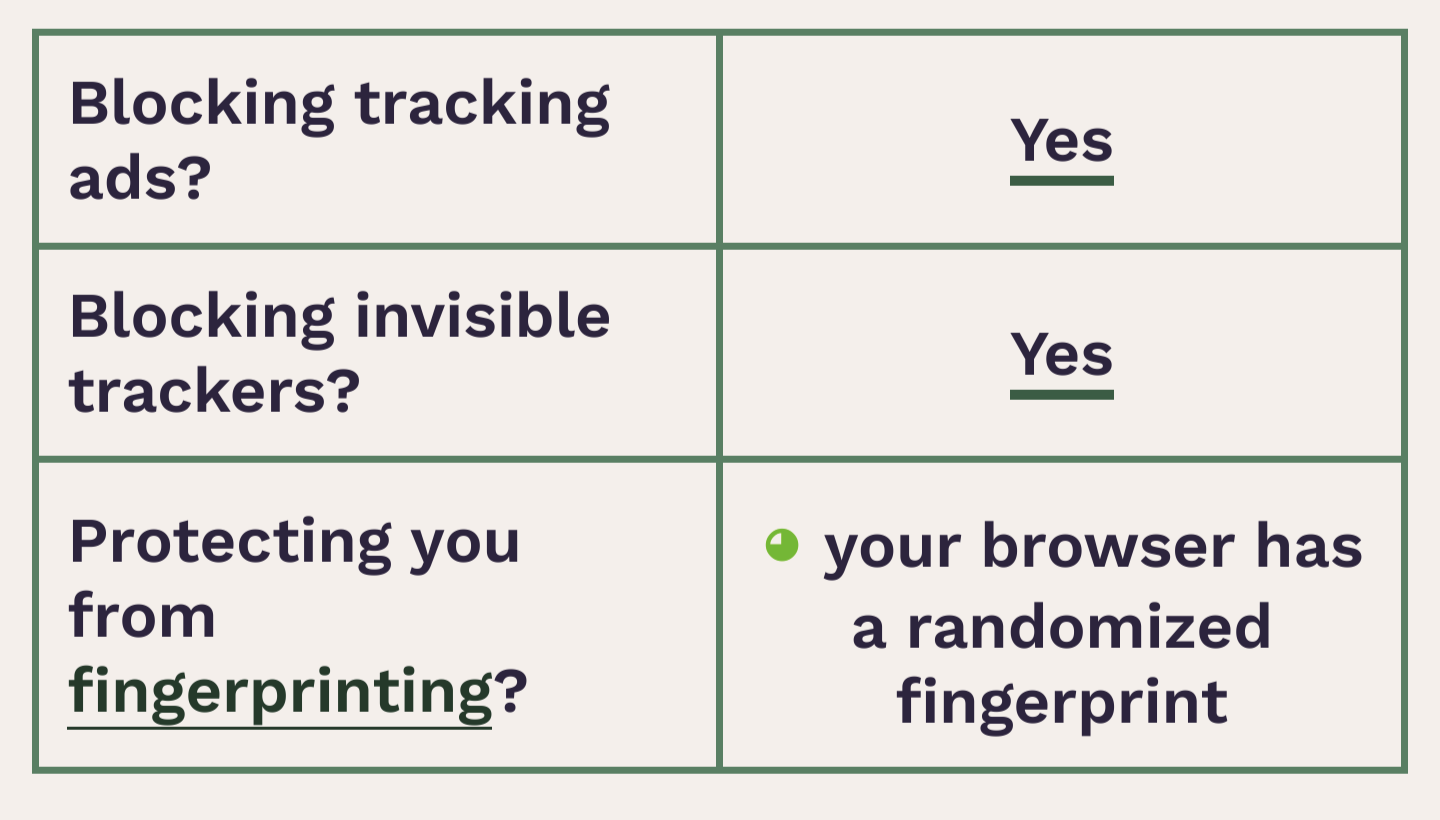What’s the deal? I’m testing using https://coveryourtracks.eff.org/ Is it truly unique (and repeatable), or is it perhaps being randomized on every request?
I’ve tried normal Firefox, Mull, and IronFox. With and without jShelter.
I’m using my phone. Stock Android on a Pixel 7 Pro.
In DDG Browser I have a “nearly unique” fingerprint.
I installed CanvasBlocker and disabled privacy.resistFingerprinting in IronFox (since CanvasBlocker said to), and my fingerprint is still unique. I guess I’m not surprised since I think CanvasBlocker is designed to randomize canvas fingerprinting.
Any tips on having even a shred of privacy when browsing the web on Android?
Update
The biggest identifying characteristics are screen size and user agent. User agent can be faked with an extension. I can’t exactly change my screen size.
I don’t know what exactly what I did, but I managed to improve to “nearly unique” in IronFox. I think all I did was install Cookie Autodelete. It’s an extension I’ve used for a long time in Mull, and finally got around to installing it. Then I installed “User-agent Switcher” and chose a Chrome user-agent and now I’m back to “Unique”. 🤔
EFF mentioned Tor Browser having some other best anti-fingerprinting, so I tried installing that. “Unique Fingerprint”. Again, maybe that’s fine if it means it’s randomized on every request. Does anyone know if that’s the case? If part of the fingerprint is a hash of canvas data and WebGL data, etc. Then I can easily see your fingerprint being unique if a browser or an extension is intentionally fuzzing that data.
Update 2
I tried Fennec with just jShelter, uBlock Origin, and Cookie AutoDelete (not that I think those last two matter).
Obtained a “randomized fingerprint” result. Success?



Protip: if your fingerprint changes every 30 seconds, then you’ve defeated their being able to track you with fingerprinting.
Install the Chameleon extension.
This isn’t as simple or successful as you make it out to be, which is why tor opts for normalization instead of randomization. There are like hundreds of variables with billions of permutations in a browser, and some combinations never appear together in the real world. If all the major vars indicate Firefox 136, but your user agent is Chrome 98, and your language is English but location is Portugal, and some of those are changing every 30 seconds, you could end up being more unique and easier to track than if you’d just used mullvad or arkenfox. Browsers and trackers constantly evolve, so you can’t ever really know how effective any random combination truly is.
Chameleon changes much more than just the user agent. We have no evidence to suggest that they can link your changing fingerprints. Thats the point. Its a fingerprint.